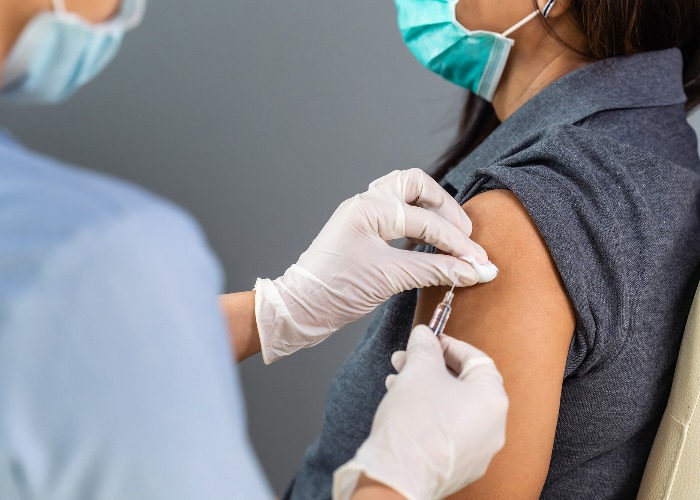Just one dose of a coronavirus vaccine jab more than halves the risk of a care home resident catching the disease, a study has found.
Scientists from University College London saw that infection rates fell by 62 per cent five weeks after someone’s first dose of a jab, and 56 per cent after four weeks.
This suggests at least half of England’s care home residents are now protected from the disease – 10,321 out of 10,413 homes across the nation were visited by medics by the end of January.
More than 41,000 care home residents have died of COVID during the pandemic and the survivors were top of the vaccine priority list because they are at such high risk.
A University College London study, which looked at more than 10,000 people, was one of the first to look at how well vaccines protected elderly people. Researchers said there was ‘substantial’ protection.
Dr Laura Shallcross added: “A single dose has a protective effect that persists from four weeks to at least seven weeks after vaccination.
“Vaccination reduces the total number of people who get infected, and analysis of lab samples suggests care home residents who are infected after having the vaccine may also be less likely to transmit the virus.”
The study examined records from 10,412 elderly care home residents from 310 care homes between December and mid-March.
It compared the rates of infection before and after vaccination to see how well the jabs stopped coronavirus.
It was not clear how the paper factored in the effects of the national lockdown, which began in early January and would have meant people had a lower risk of infection later on in the study, after many of them had been vaccinated.
Dr Maddie Shrotri, from UCL’s Institute of Health Informatics, said: “Our study suggests both vaccines currently in use in the UK are effective at reducing infections in frail, older adults.
“This new evidence is important because there is currently limited data about vaccine efficacy for this vulnerable population.
“Vaccines did not appear to have much of an impact on residents who had already survived COVID, suggesting they had strong natural immunity.”
The authors say this early finding requires further study because only 11 per cent of the participants had previously contracted the virus.
Further research is also needed to examine how effective a first dose is after eight to 12 weeks, and the impact of a second dose.
Professor Chris Whitty, England’s chief medical officer, said about the study: “These data add to the growing evidence that vaccines are reducing COVID infections and doing so in vulnerable and older populations, where it is most important that we provide as much protection from COVID as possible.’
The study was published online at medRxiv. Mail Online

 Join Daily Trust WhatsApp Community For Quick Access To News and Happenings Around You.
Join Daily Trust WhatsApp Community For Quick Access To News and Happenings Around You.


